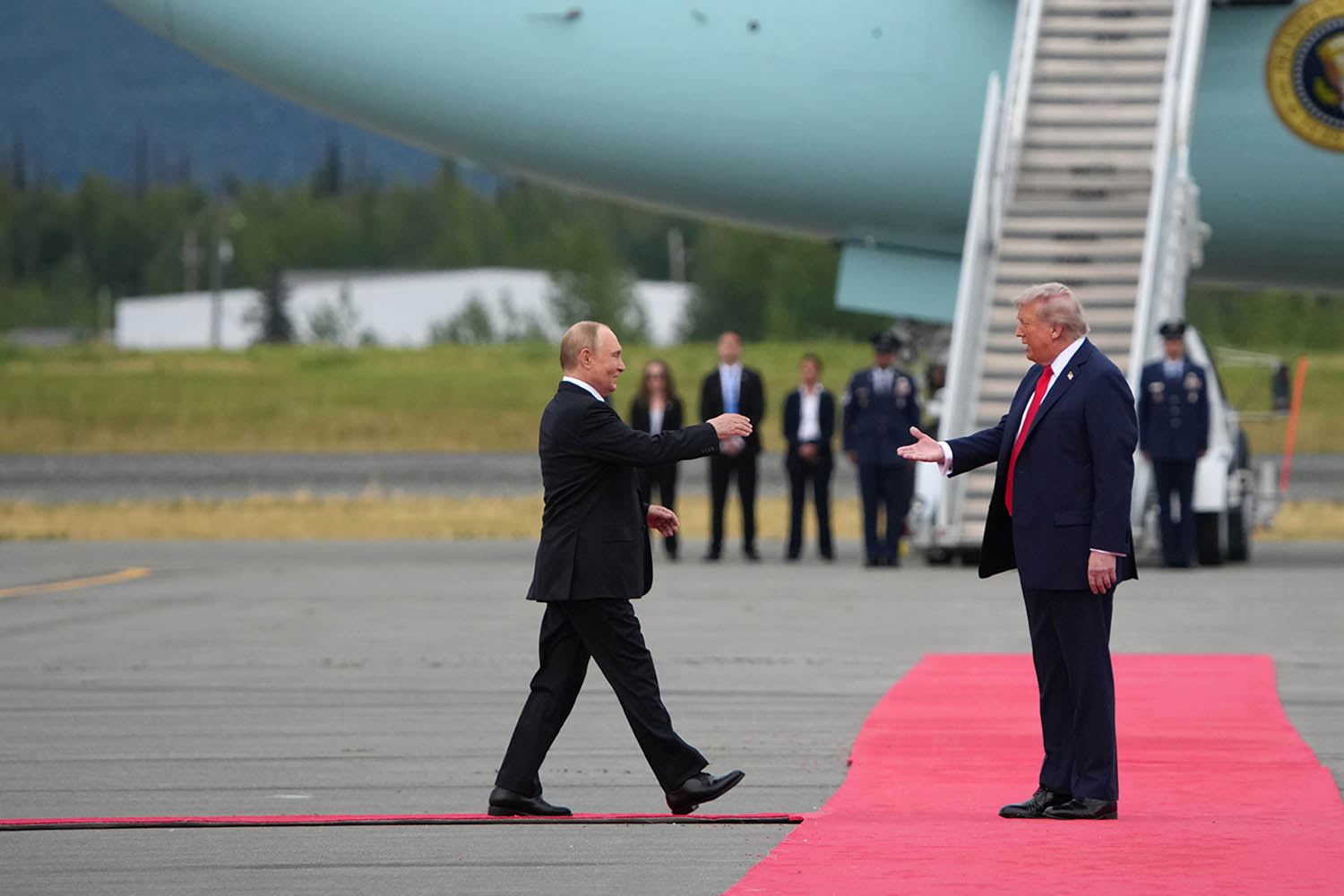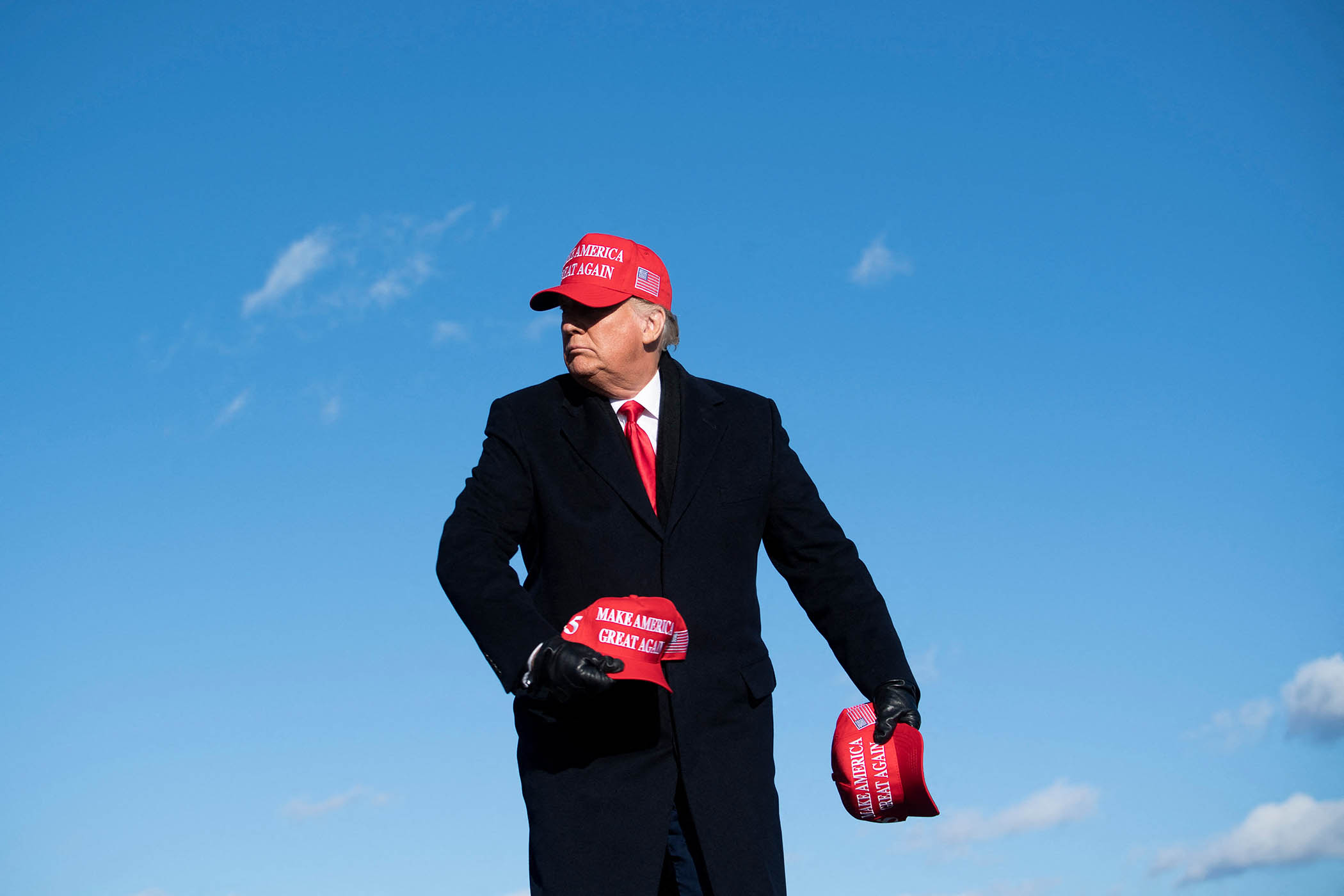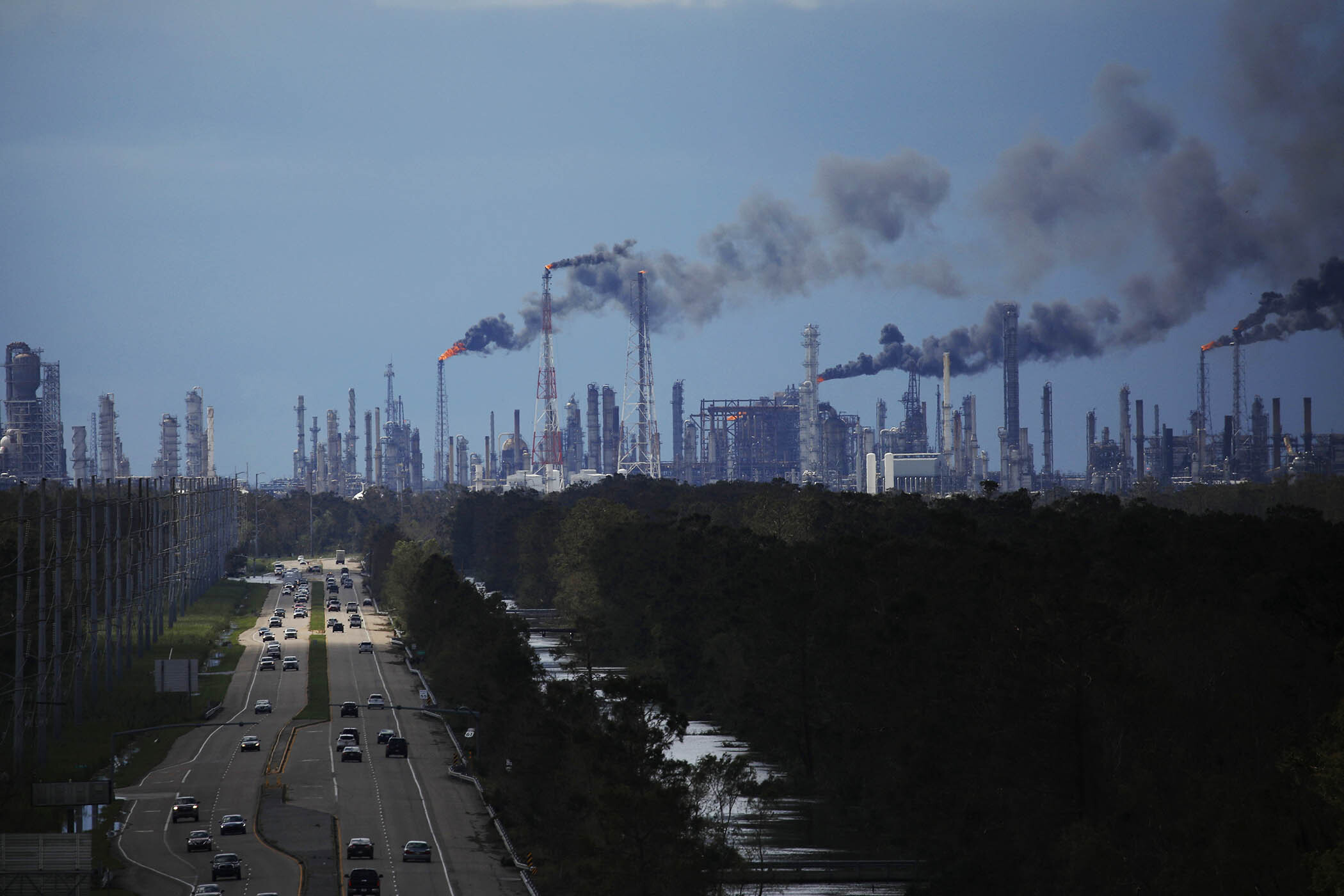When the meeting between Presidents Trump and Zelensky was about to begin, a Telegram channel close to the Russian FSB security service, Kontora Pishet, posted two side-by-side photographs. One showed Trump extending his hand to Putin on a red carpet in Alaska. The other depicted European leaders sitting in a long corridor with their heads bowed, waiting outside a closed door. The first one was real, the second was a clear fake – but the two of them summarise the way Moscow wanted to play the recent US diplomatic efforts to end the war.
The message the Kremlin wanted to drive home was clear: “We’ve told you for years that there are only two leaders of superpowers capable of making decisions about the war. Ukraine is just a client state, Europe an American dependency, and the meeting in Alaska is the proof.”
The response of pro-Kremlin media to the summit in Washington was equally aggressive toward Europeans and Zelensky. Putin’s beloved tabloid, Komsomolskaya Pravda, ran front-page headlines: “Europeans Have Proven Their Absolute Uselessness” and “Zelensky’s Dead End”. The first story trashed the Europeans for bringing to Washington an unchanged list of demands – the author asks himself why they came in the first place “while Putin and Trump are moving towards an unprecedented rapprochement for the sake of peace”. The second attacked the Ukrainian president for his “horrible smile”.
Yet Russian reporting of Monday’s summit unintentionally undermined the required narrative.
The meeting between Trump and Putin threw pro-Kremlin media into a state of clear agitation. More than 70 Russian journalists flew to Alaska – those lucky enough to have been granted US visas for the occasion, quite a few having been denied. For many, it was their first trip to a Western country since the full-scale invasion of Ukraine began.
The reporter from Komsomolskaya Pravda wrote a lengthy piece listing the difficulties they encountered after the Moscow contingent landed in Anchorage: their SIM cards failed to activate and their Russian credit cards were not accepted due to sanctions, all despite a promise by the US to lift the sanctions for the duration of the summit, he complained.
He quoted an older colleague who lamented that in nearly 40 years of travelling to the US he had never experienced anything like this. And indeed, the story resembles Soviet journalism describing the “lives of others” in capitalist countries. Every detail of everyday life, from SUVs parked next to local houses or a ride on a bus being described as interesting, even thrilling. Who would have thought that public transport exists in America? – exclaimed a reporter after being allowed on to a bus free of charge because his Russian bank card had been blocked.
It resembled Soviet journalism describing the “lives of others” in capitalist countries. ‘Who would have thought that public transport exists in America?’ exclaimed a reporter
It resembled Soviet journalism describing the “lives of others” in capitalist countries. ‘Who would have thought that public transport exists in America?’ exclaimed a reporter
There was also palpable tension in Moscow on the eve of the Alaska meeting. The popular pro-Kremlin tabloid Moskovsky Komsomolets ran a piece weighing the possibility of Putin being arrested on US soil as a war criminal wanted by the International Criminal Court. The paper concluded that such a scenario was highly unlikely, as it would provoke an all-out war between the US and Russia. Yet the very decision to run such a story – apparently to calm anxious readers – did little to support the Kremlin’s narrative of the meeting being between two leaders equal in power and prestige.
In this narrative, Zelensky cannot be seen as anything even remotely equal – and the pro-Kremlin media have duly continued to trash him as “an expired” or “head of the Kyiv regime” which implies illegitimacy since in the Russian political terminology the word “regime” has been reserved since the Soviet times for leaders of military juntas and dictators.
The reception granted by Trump to Putin didn’t lift expectations in that a real peace deal could be achieved soon – the media were told not to inflate them, focusing on the fact that the very meeting with Trump was the big success.
Newsletters
Choose the newsletters you want to receive
View more
For information about how The Observer protects your data, read our Privacy Policy
Indeed, it seemed to be exactly what Putin wanted: a summit he could present to his domestic audience as proof that the country’s isolation had ended, that Russia was back on the world stage with Putin playing the role of a superpower leader – just like the leaders of the Soviet Union, whose demise Putin called the biggest geopolitical catastrophe of the 20th century.
The question now is whether Putin’s elevation by Trump turns out to be the only real change in US-Russian relations brought about by the Trump administration.
Photograph by Andrew Harnik/Getty


